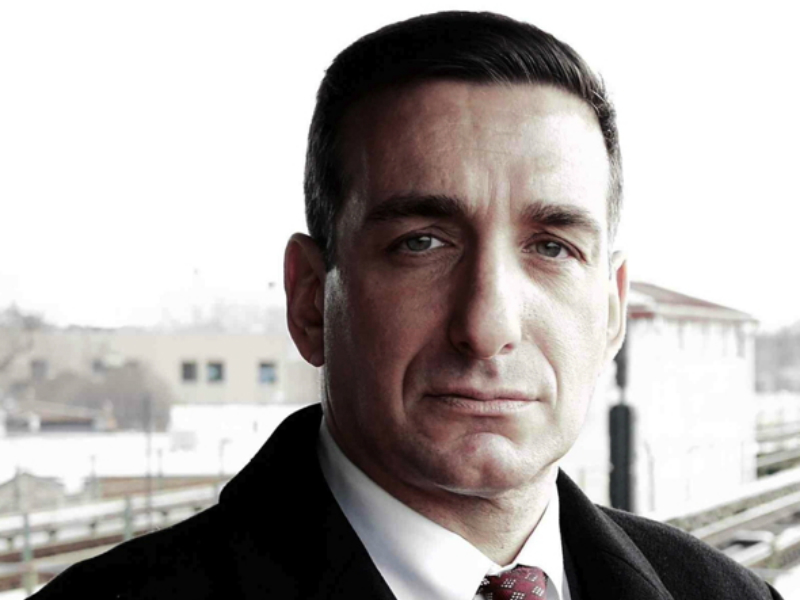It’s been about 20 years since Steven Rambam went undercover to interview elderly men, and at least one woman, who he believed to be Nazi war criminals.
Posing as Salvatore Romano, a researcher from a university in Belize, it didn’t take him long to gain the trust of his targets. It turns out that eastern Europeans, even those from a blue-collar background, have a lot of respect for academics. Those who he met in Canada soon let down their guard and opened up about their service during the Second World War. That service included the mass murder of Jews, according to Rambam.
Armed with that information – including an audio recording, in at least one case – he thought that the Canadian government would use his findings to prosecute the alleged war criminals.
But that rarely happened. Rambam remains intensely disappointed at the government’s disinterest in pursuing the cases. In 2019, with the youngest of the war criminals already in their 90s, he acknowledges that the effort is pretty much over.
Rambam, who works as a private investigator in New York and specializes in death claims investigations, will tell his story at a speaking engagement on May 5 at Chabad Flamingo in Thornhill, Ont.
READ: MORE THAN HALF OF CANADIANS DON’T KNOW SIX MILLION JEWS DIED IN HOLOCAUST: POLL
With the passage of time, Rambam said he is now free to discuss more of his activities. “One of the things I’m going to be talking about is the behind-the-scenes stuff, including conversations with Canadian authorities,” he says.
Rambam recalls a conversation he had with a senior member of the Canadian war crimes unit over breakfast, some time around 2000. The attorney “looked at me and said, ‘Just because we can prosecute somebody, doesn’t mean it’s in Canada’s interest to prosecute somebody.’ ”
Rambam believes that “90 per cent of it was the Canadian government did not see it as a justification for allocating resources for something that happened 80 years ago.”
To this day, he remains intensely disappointed at the government’s disinterest in pursuing the cases.
With limited resources, he was able to create a list of 1,000 Nazis who had come to Canada. He winnowed that down to a more manageable 200 – the worst of the worst – and interviewed 180 of them himself. The Arajs Kommando, a Latvian killing unit that the Nazis employed throughout eastern Europe, “immigrated en mass to Canada,” he says. He was able to identify 70 of its members, located mostly in Toronto and Montreal.
If he could find them, so could law enforcement, he says. And once they had done so, they could have employed the routine police tactic of bringing in several suspects at once and offering them a deal if they turned on the others.
One element of his discussion will focus on the organized Jewish community. Over the phone, Rambam’s disappointment over the community’s efforts to bring war criminals to justice was palpable.
At the same time as he submitted his findings to the RCMP, he provided the same material to Canadian Jewish Congress (CJC), which, at the time, was the community’s premier advocacy agency. If the CJC truly felt that the cause was pressing, it would have pushed authorities harder, or even hired its own team of investigators to gather evidence, Rambam says.
He points to the case of Antanas Kenstavicius, who took part in the murder of 5,000 Jews in the Lithuanian town of Ignalina.
Rambam found Kenstavicius in Hope, B.C. Posing as the academic Romano, he soon gained the confidence of Kenstavicius and his wife. “Once the cork is pulled, he keeps talking and talking and talking,” Rambam says, referring to Kenstavicius and other Nazis he interviewed.
He surreptitiously recorded the conversation with Kenstavicius and turned it over to federal authorities. In 1996, Kenstavicius was charged, but he died before his case was heard.
It turns out that the CJC knew about Kenstavicius for decades and had turned over documents about him to law enforcement. But Rambam says that the organization did not press the government to do something about him.
“If you are a Nazi war criminal and mass murderer of Jews, you have escaped justice. They are dying peacefully in their beds. What does it say about the value of Jewish life?” Rambam asks. “The Jewish community did nothing. The Jewish community leadership did nothing.”
